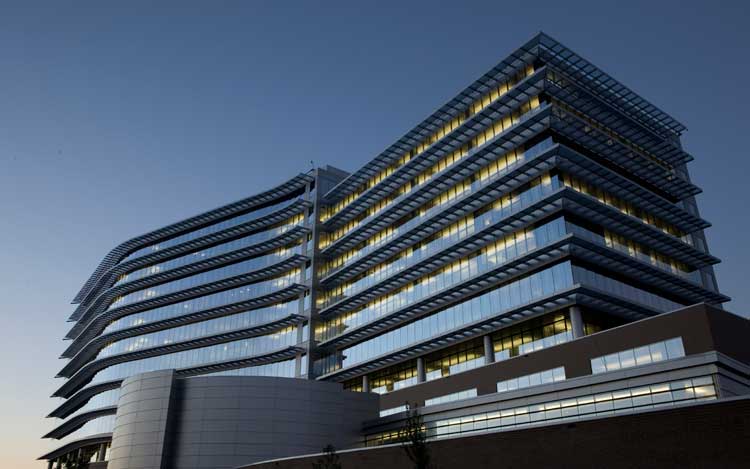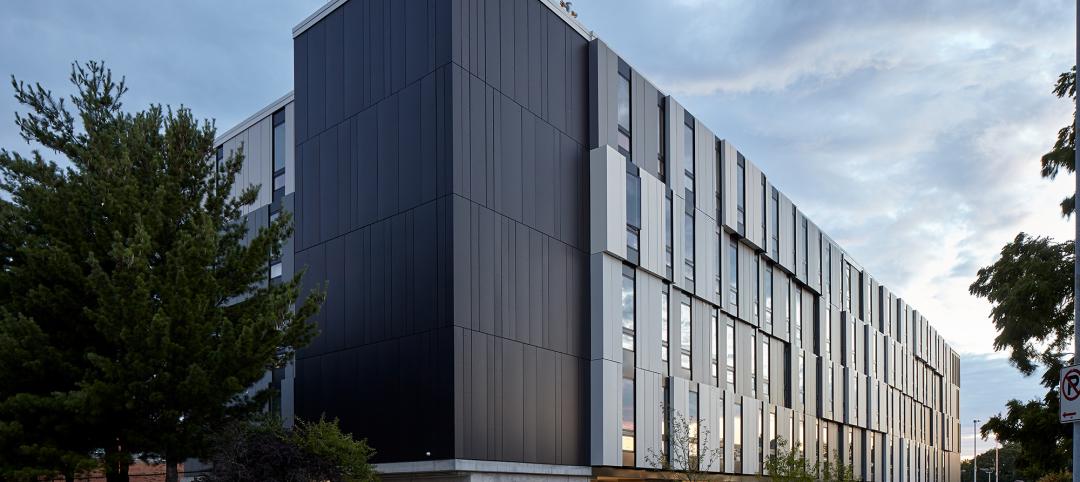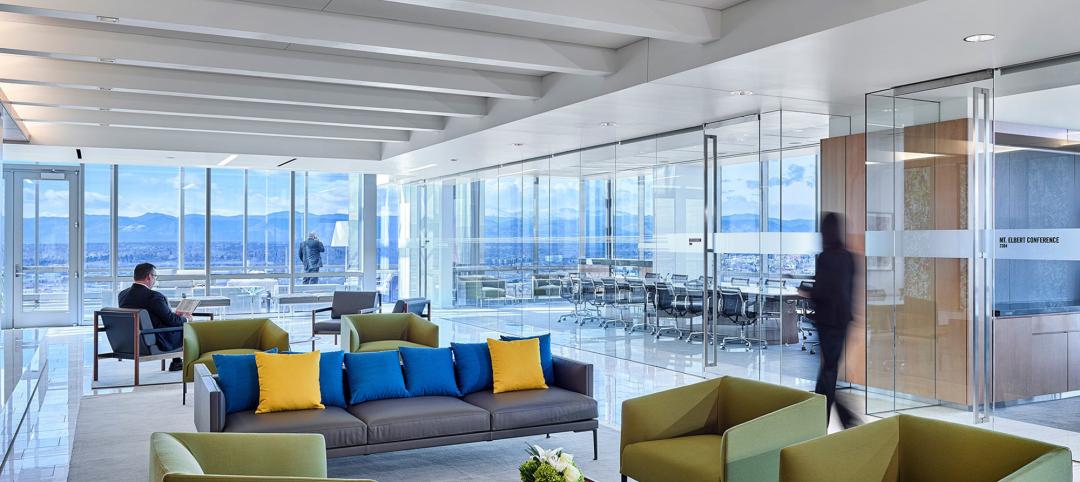CBRE Group announced today five recipient institutions in its Real Green Research Challenge (RGRC). Launched in September 2012, the RGRC is CBRE’s $1 million commitment to fund leading-edge sustainability research and innovation in commercial real estate.
CBRE has awarded RGRC funding and organizational support to sustainability projects developed by the Natural Resources Defense Council, Stanford University, EURO Institute of Real Estate Management, Cleveland State University and Central Michigan University, and Maastricht University.
“Growing market awareness of commercial buildings’ environmental impact is inspiring innovation in sustainability research,” said Bob Sulentic, CBRE’s President and CEO. “The Real Green Research Challenge advances this research by providing financial resources as well as access to CBRE’s market-leading global market data and technical expertise to help address some of the most challenging sustainability issues facing commercial real estate owners, investors and occupiers.”
After an evaluation of more than 100 submissions by an independent judging panel, CBRE has chosen five projects to receive RGRC financial awards:
- a rating system for comparative tenant energy use that provides a quantitative foundation for identifying and promoting energy efficient practices (Natural Resources Defense Council’s Center for Market Innovation);
- a detailed empirical evaluation of EPA ENERGY STAR® energy management strategies allowing facilities and property managers to prioritize energy efficiency projects (Stanford University, Center for Integrated Facility Engineering);
- a comprehensive economic analysis of the value implications of green building practices on large institutional real estate portfolios (EURO Institute of Real Estate Management);
- a new industry-wide, regionally sensitive, green building scoring protocol system to inform U.S. office tenants’ leasing decisions and developers’ sustainable building choices (Cleveland State University and Central Michigan University); and
- a quarterly green building index of the top 30 U.S. metro markets, yielding insights for policy makers, developers and other stakeholders and supporting lenders’ risk management analysis and investors' decisions (Maastricht University).
“The projects supported through the Real Green Research Challenge will add significant knowledge to some of the key sustainability issues in commercial real estate, such as the relative value of sustainable buildings, the most effective energy efficiency initiatives and the location of green building market growth,” said Dave Pogue, CBRE’s Global Director of Corporate Responsibility. “These and other issues are the focus of the projects CBRE is funding, and the answers could have a profound effect on how buildings are leased, occupied and improved in the future.“
CBRE’s Environmental Sustainability program includes global commitments in 11 key areas of environmentally sound performance, including resource management, occupancy, communications and training, public policy and procurement. The program provides best practices and initiatives that strengthen CBRE’s own environmental commitment, reflect the best environmental practices in our clients’ properties, and provide vital training and education to CBRE professionals.
For more information about the RGRC, please visit www.cbre.com/rgrc.
About CBRE Group, Inc.
CBRE Group, Inc. (CBG), a Fortune 500 and S&P 500 company headquartered in Los Angeles, is the world’s largest commercial real estate services and investment firm (in terms of 2012 revenue). The Company has approximately 37,000 employees (excluding affiliates), and serves real estate owners, investors and occupiers through more than 300 offices (excluding affiliates) worldwide. CBRE offers strategic advice and execution for property sales and leasing; corporate services; property, facilities and project management; mortgage banking; appraisal and valuation; development services; investment management; and research and consulting. Please visit our website at www.cbre.com.
Related Stories
Curtain Wall | Aug 15, 2024
7 steps to investigating curtain wall leaks
It is common for significant curtain wall leakage to involve multiple variables. Therefore, a comprehensive multi-faceted investigation is required to determine the origin of leakage, according to building enclosure consultants Richard Aeck and John A. Rudisill with Rimkus.
MFPRO+ News | Aug 14, 2024
Report outlines how Atlanta can collaborate with private sector to spur more housing construction
A report by an Urban Land Institute’s Advisory Services panel, commissioned by the city’s housing authority, Atlanta Housing (AH), offered ways the city could collaborate with developers to spur more housing construction.
Adaptive Reuse | Aug 14, 2024
KPF unveils design for repositioning of Norman Foster’s 8 Canada Square tower in London
8 Canada Square, a Norman Foster-designed office building that’s currently the global headquarters of HSBC Holdings, will have large sections of its façade removed to create landscaped terraces. The project, designed by KPF, will be the world’s largest transformation of an office tower into a sustainable mixed-use building.
Sustainability | Aug 14, 2024
World’s first TRUE Zero Waste for Construction-certified public project delivered in Calif.
The Contra Costa County Administration Building in Martinez, Calif., is the world’s first public project to achieve the zero-waste-focused TRUE Gold certification for construction. The TRUE Certification for Construction program, administered by Green Business Certification Inc. (GBCI), recognizes projects that achieve exceptional levels of waste reduction, reuse, and recycling.
Modular Building | Aug 13, 2024
Strategies for attainable housing design with modular construction
Urban, market-rate housing that lower-income workers can actually afford is one of our country’s biggest needs. For multifamily designers, this challenge presents several opportunities for creating housing that workers can afford on their salaries.
University Buildings | Aug 12, 2024
Planning for growing computer science programs
Driven by emerging AI developments and digital transformation in the business world, university computer science programs are projected to grow by nearly 15% by 2030.
Energy Efficiency | Aug 9, 2024
Artificial intelligence could help reduce energy consumption by as much as 40% by 2050
Artificial intelligence could help U.S. buildings to significantly reduce energy consumption and carbon emissions, according to a paper by researchers at the Lawrence Berkeley National Laboratory.
Sponsored | Healthcare Facilities | Aug 8, 2024
U.S. healthcare building sector trends and innovations for 2024-2025
As new medicines, treatment regimens, and clinical protocols radically alter the medical world, facilities and building environments in which they take form are similarly evolving rapidly. Innovations and trends related to products, materials, assemblies, and building systems for the U.S. healthcare building sector have opened new avenues for better care delivery. Discussions with leading healthcare architecture, engineering, and construction (AEC) firms and owners-operators offer insights into some of the most promising directions. This course is worth 1.0 AIA/HSW learning unit.
Office Buildings | Aug 8, 2024
6 design trends for the legal workplace
Law firms differ from many professional organizations in their need for private offices to meet confidentiality with clients and write and review legal documents in quiet, focused environments
Data Centers | Aug 8, 2024
Global edge data center market to cross $300 billion by 2026, says JLL
Technological megatrends, including IoT and generative AI, will require computing power to be closer to data generation and consumption, fueling growth of edge IT infrastructure, according to a new JLL report.

















